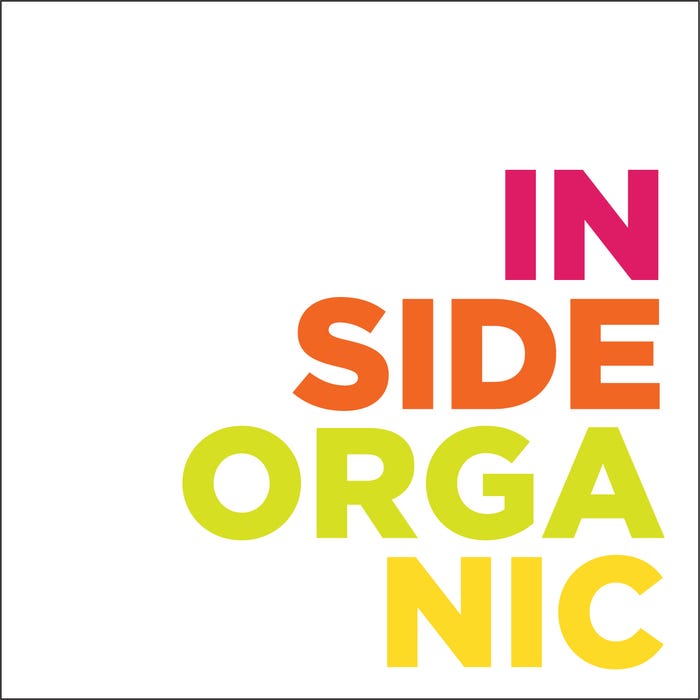
Let's elevate organic, together.
Unpacking the future of organic messaging – webinar
Producing organic products today is more urgent than ever and brands and suppliers alike need to stay on top of shifting demand. The Inside Organic Summit on June 4 will help businesses across the supply chain craft strategies that align with current research and consumer trends.
May 29, 2024

Date: Jun 4, 2024
Duration: 3 Hr
Sponsored by Inside Organic
This year’s Inside Organic Summit, set for June 4, focuses on a critical issue at the heart of the organic industry: effective communication about the benefits of organic products. Despite widespread belief in the superiority of organic goods for both health and environmental reasons, the industry faces significant hurdles in conveying these benefits to the public.
A decentralized approach to marketing organic products’ benefits has added to the confusion that consumers face. Research shows that consumers have higher levels of trust in the certifications they are most familiar with. The U.S. Department of Agriculture found that 70% of consumers trust the USDA organic seal—the most trusted agricultural label and the second-most trusted food label, second only to the American Heart Association’s iconic checkmark. This further underlines the need for strong, unified messaging about the benefits of USDA organic products to consumers—but how to make it happen?
Several new toolkits, including the Organic Trade Association (OTA) Organic Opportunity Communications Toolkit, the USDA National Organic Program’s recently launched Organic Consumer Outreach Toolkit, and USDA Organic, in partnership with Organic is the Answer open source toolkit can help educate consumers as well as brands and retail professionals. With multiple agencies across the industry launching toolkits aimed at improving messaging, the future is ripe with opportunity.
The virtual event, Inside Organic Summit: Elevating organic messaging—barriers and opportunities, is curated by Content Marketing Director Nancy Coulter-Parker. The three-hour webinar will be rich with expert insights aimed at dismantling barriers and leveraging new market opportunities.
Organic messaging barriers, opportunities and partnerships
The OTA and Euromonitor International study Consumer Perception of USDA Organic and Competing Label Claims, published earlier this year, focuses on how consumers shop and why they choose certain labels over others. As consumers increasingly connect personal health with the health of the planet, NIQ has reported more growth across the store in products that have “Better For” claims, including environmental, sustainable packaging, animal welfare and social responsibility. While inflation impacted prices, prices on “Better For” products, including organic, are more resilient and stable. The report’s demographics of organic purchasers provide food for thought, too: Millennials and Gen Z, who are highly focused on sustainability, people and planet, are reshaping the future for organic through their shopping values.
One factor in successfully messaging organic is the use of metrics, research and data. One tool, Life Cycle Assessments, do not always produce favorable results for organic ingredients, however. Businesses use this as a goal for metrics and yet organic is often devalued through the measurement process. Experts in the organic field have been working for a “whole systems benefit” approach when addressing sustainability metrics, making it easier to look at the entire picture of producing a product.
The term regenerative—a popular buzzword right now—can also cause confusion for consumers because they might not realize that organic is regenerative. Data shows that USDA Organic meets the goals/vision of regenerative agriculture, and many regenerative agriculture practices are required for the organic certification. It’s no wonder many companies and consumers are confused.
Regenerative Organic Certified sets the highest bar, as this program shines when it comes to the all-important biodiversity. Through a partnership, Whole Foods Market and Mad Agriculture aim to increase biodiversity on U.S. farms through the installation of prairie strips. Prairie strips are linear perennial plantings of prairie grasses and wildflowers strategically integrated into row crop fields.
Here’s a brief overview of the event’s agenda :
Trends and consumer research - Speakers Sherry Frey and Maria Maysonet from NIQ; Tom Chapman, Co-CEO of the Organic Trade Association
Overcoming barriers to messaging: Life cycle assessments, research and metrics - Amber Sciligo, director of science programs at the Organic Center, moderates a panel discussion that includes Tina Owens, vice president, agriculture transition, Intrinsic Exchange Group; Adam Kotin, managing director, Soil and Climate Initiative; and Kathleen Merrigan, executive director and professor, Arizona State University and the former deputy secretary and chief operating officer of the U.S. Department of Agriculture.
Talking about Regeneration: How to talk about organic & regenerative together, for people, planet & animal welfare - Coulter-Parker, moderates a panel discussion with Elizabeth Whitlow, executive director, Regenerative Organic Alliance; Kendra Klein, deputy director of science, Friends of the Earth; and Brise Tencer, executive director, Organic Farming Research Foundation.
Uniting the retailer, brand and farmer to enhance biodiversity while addressing sustainability goals. A farm-to-shelf case study - Elizabeth Candelario, chief strategy officer, Mad Agriculture, moderates a panel discussion with Nijia Zhou, climate principal, Whole Foods Market; Luke Peterson, regenerative organic farmer, A-Frame Farm; and Emily Griffith, founder and CEO, Lil Bucks.
Don’t miss the chance to be part of this pivotal event in the organic industry. Engage with thought leaders, gain exclusive insights and help shape the dialogue around the future of organic.
Register now to secure your spot at the Inside Organic Summit 2024 and join us in elevating the conversation around organic products.
Read more about:
Co-branded articlesYou May Also Like